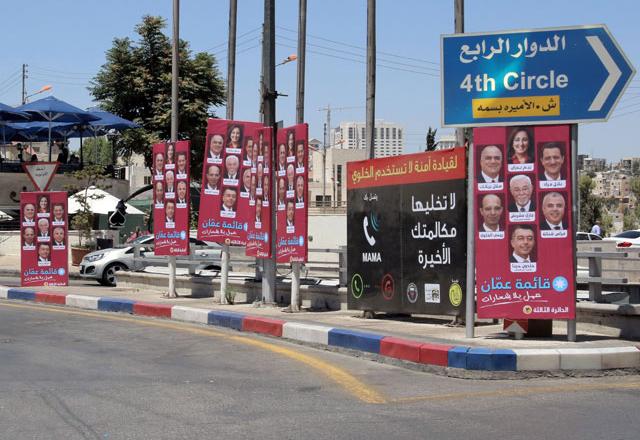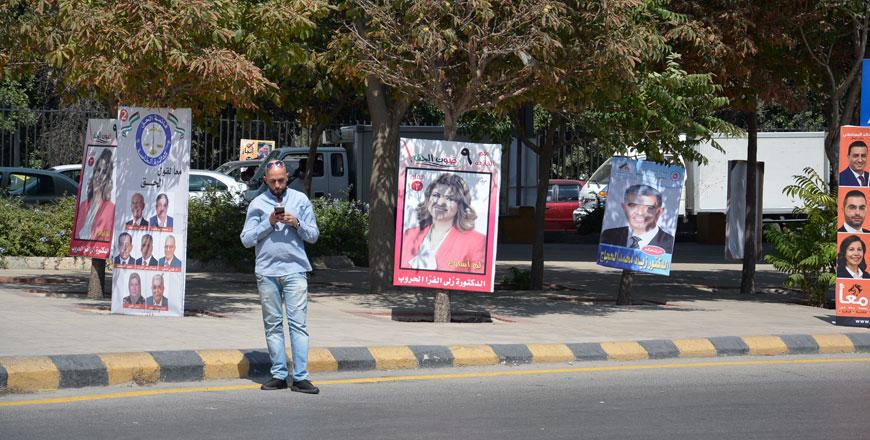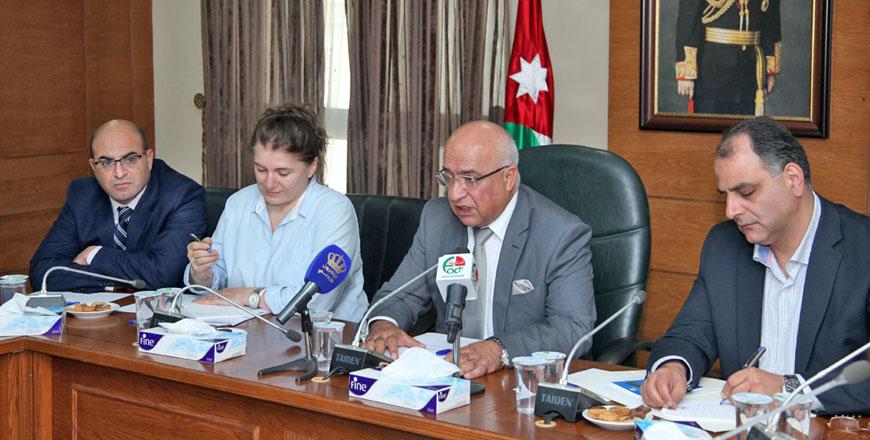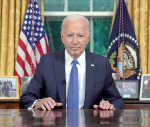You are here
Women’s movement hopes to exceed quota in elections
By Rana Husseini - Aug 18,2016 - Last updated at Aug 18,2016

Election campaign ads are seen on a street corner in Amman on Tuesday (Photo by Osama Aqarbeh)
AMMAN — The women’s movement has expressed optimism that some female parliamentary candidates could clinch seats outside the 15-seat designated women’s quota in the upcoming elections.
“I believe we will see four or five women return to the Lower House and some could win through direct competition,” said the head of the Women’s Committee at the Senate, Senator Mai Abul Samen.
Abul Samen added that she does not expect more than two women to win outside the quota “although in some governorates women are gaining strong tribal support”.
“In some areas there is strong support for women and in others it does not exist and there are many lists that did not include any woman,” Abul Samen told The Jordan Times.
Laila Naffa, from the Arab Woman Organisation, agreed, and said that the number of women winning outside the quota would be “two to three maximum”.
But Naffa was quick to add that “we will see some female faces again because there are some women MPs who have proved themselves in the Lower House more than once”.
By the end of the candidacy registration on Thursday, the Independent Election Commission said 230 lists applied.
The lists included 1,293 candidates, 257 of them are women, or 20 per cent, according to official figures.
Jordanian National Commission for Women (JNCW) Secretary General Salma Nims said “probably two or three women will win outside the quota and this does not reflect our aspiration”.
“Based on the lists that are being announced and the fact that some of them are listing names of female candidates and putting between brackets the word women’s quota, this will sure lessen the chances of more women to win outside the quota,” Nims told The Jordan Times.
She added that the election of two or three women outside the quota would be a similar result to the last election “and this means that we are not scoring any improvements”.
Jordanian Women’s Union (JWU) President Tahani Shakhshir criticised the current Elections Law, saying “it was unjust to women.”
“The way the law stands, it will not allow many women to reach the Lower House because it is based on governorates and not districts, which means that for women in the governorates with multiple districts, it will be extremely to win outside the quota,” Shakhshir explained.
In governorates with only one district, the woman who collects the highest number of votes from the lists will win a seat in the quota.
In governorates with multiple districts, like Amman, Irbid and Zarqa, the calculation will differ and it will depend on the percentage of the voters in each district versus the highest percentage of votes that women win in their districts.
Executive Director at the Sisterhood Is Global Institute (SIGI) and former minister Asma Khader said she was optimistic that more women might win outside the quota.
“We see some lists, especially in Amman, that have more than one woman and this is a very positive indicator although the percentage calculation might make it difficult for women in general to win outside the quota,” Khader told The Jordan Times.
Abul Samen and Naffa stressed that there are several factors that still hinder women from running and from reaching the Dome.
One such factor was financial, they said, and another was the fact that there are some tribes or families that “are still not convinced that women’s place is in the Parliament and, therefore, do not provide them with any support”.
Many women’s groups have started focusing their programmes and activities on supporting female candidates and raising awareness among voters about the need to have more women in the Lower House.
The JNCW has launched several programmes to empower female candidates in various governorates.
The programmes focus on training on the basics of gender concepts, the international conventions related to women’s political participation, ways to draft campaign plans and how to run election campaigns.
The JNCW said that it would provide technical and legal support for female candidates.
“Our campaigns are focusing on encouraging voters to elect women specifically, and candidates in general, who have slogans that call for equality and social justice,” Nims explained.
The JNCW secretary general added: “We surely do not want women to win just because they are women, because we experienced in the past some female deputies who worked against women. We want women who will fight for social justice and equality for all.”
The AWO is also keen to ensure that female candidates, if elected, support the women’s movement.
“We are using social media to raise awareness about female candidates and what we expect from them once they reach the Dome,” Naffa said.
The AWO official added that her organisation prepared a list of demands that they will be distributed to the candidates “to let them know what the women’s movement expects from them when they reach Parliament”.
Meanwhile, the JWU is reaching out through its 11 branches in the Kingdom to female candidates and offering them training courses on their role in the elections and what to expect after winning, Shakhshir told The Jordan Times.
Khader said SIGI is implementing a project to monitor the elections from a gender perspective titled “Eye on the Elections”.
“We have around 900 young men and women working with us to monitor the process of elections, the registration, the committees and everything that relates to women,” the former minister explained.
Earlier this month, Minister of Political and Parliamentary Affairs and Minister of State Musa Maaytah pledged to support activists’ efforts to ensure a strong representation of women in the upcoming Parliament.
The Elections Law is based on an at-large voting system, in which candidates can run for parliamentary elections on one large multimember ticket.
The law divides Jordan into 23 electoral districts, with one district for each governorate, while the capital contains five districts, Zarqa has two and Irbid has four.
The number of MPs as per the new Elections Law will be 130, including 15 seats for the women’s quota.
Under the proportional electoral system, winning lists will be allocated seats according to the percentage of votes they receive. The seats will be distributed to the ticket members with the most votes.
Each voter can only pick one list and must then select a candidate or candidates from the ticket.
Related Articles
AMMAN — Women’s rights activists on Thursday said that the disappointing results for women candidates in the parliamentary elections was exp
AMMAN — Women’s rights activists are standing by their August predictions that a maximum of three women could clinch seats outside the women
AMMAN — The government on Sunday pledged to support activists’ efforts to ensure a strong representation of women in the upcoming Parliament


















